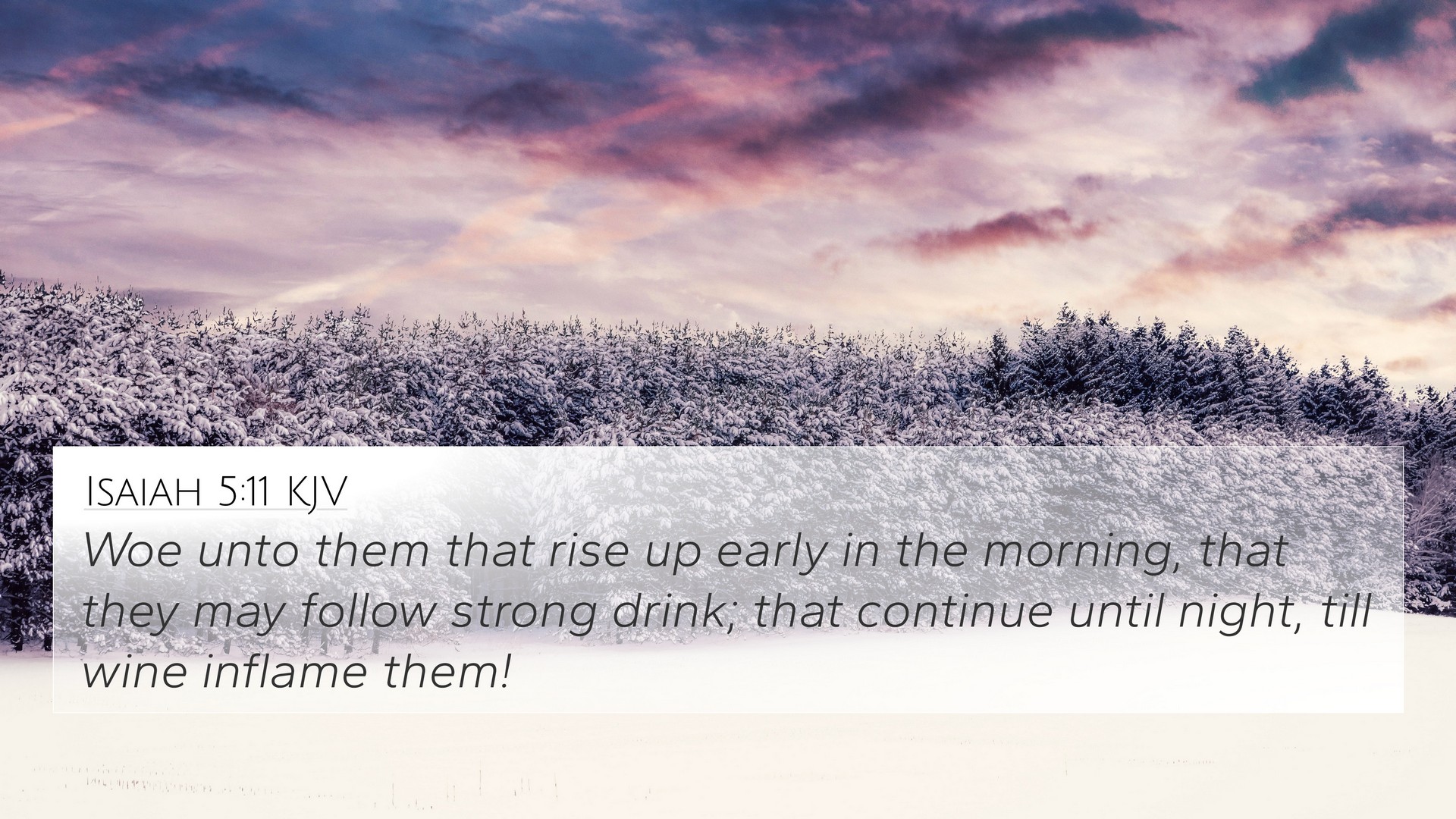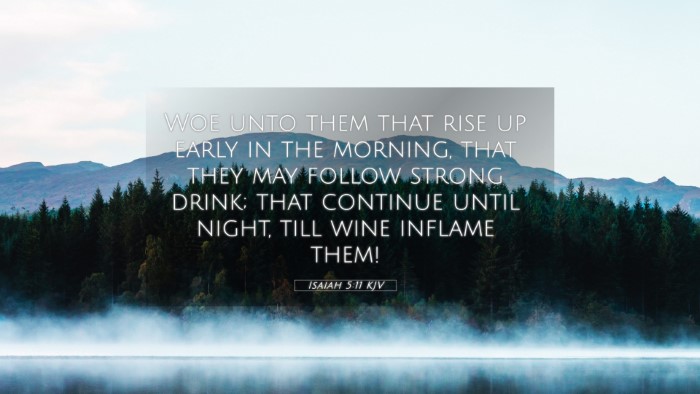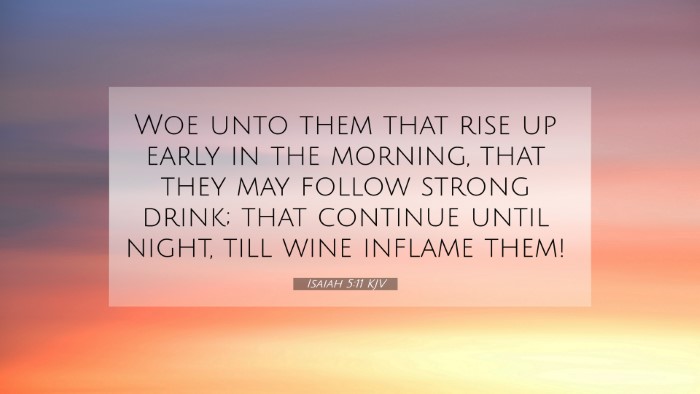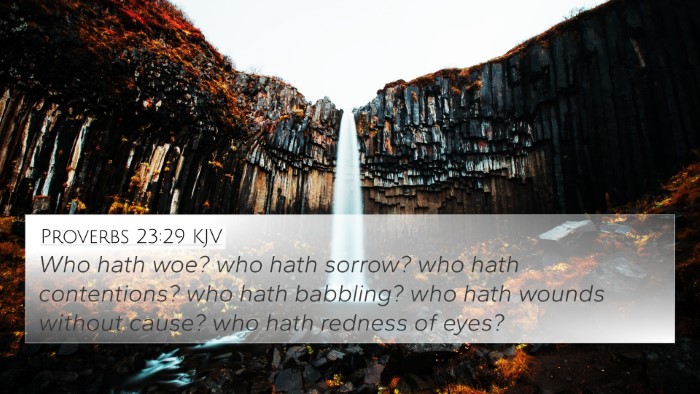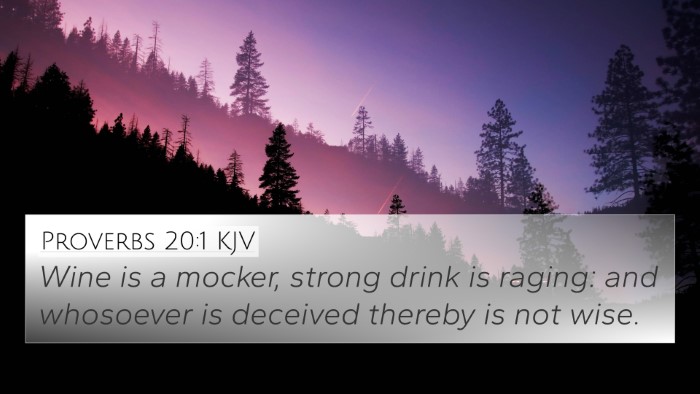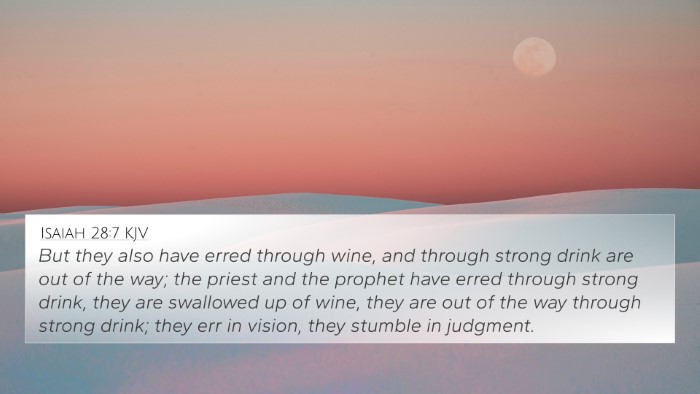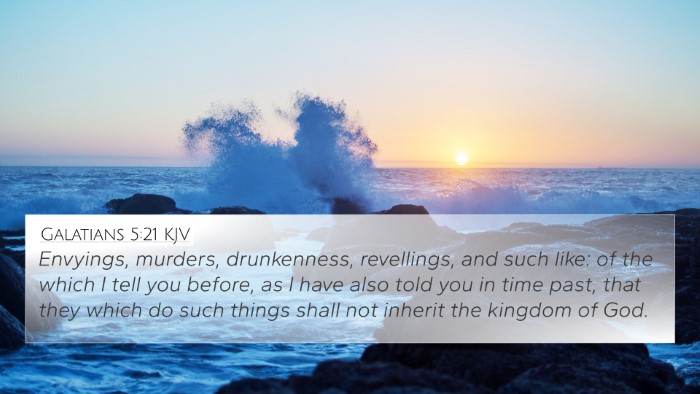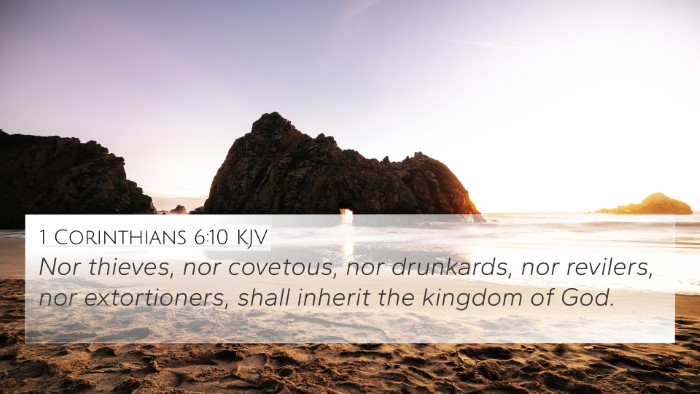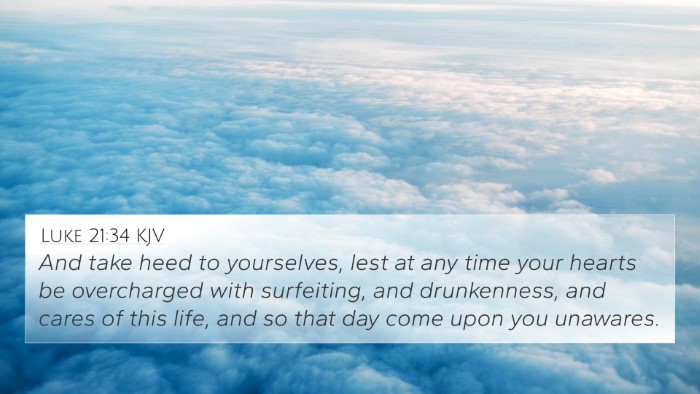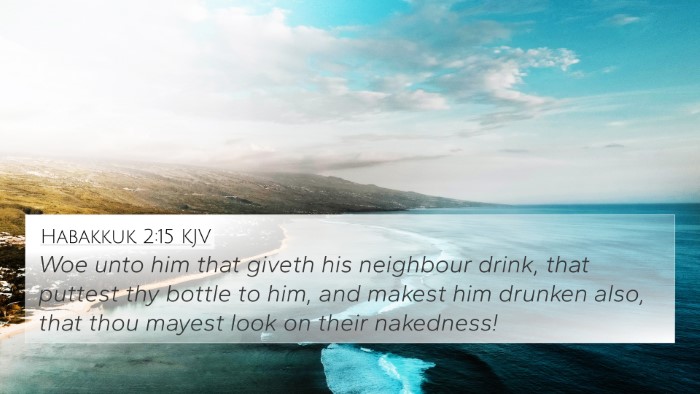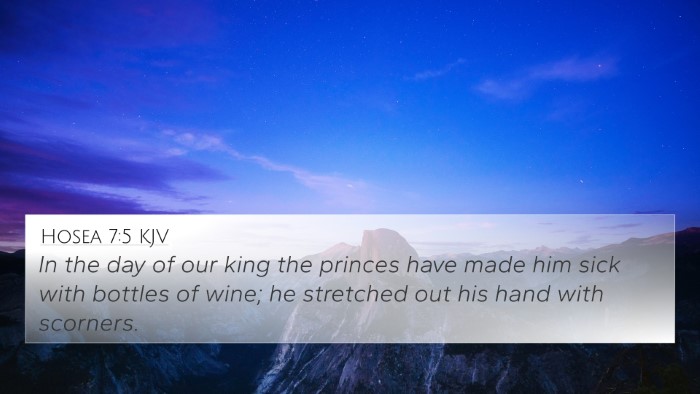Understanding Isaiah 5:11
Isaiah 5:11 states:
“Woe unto them that rise up early in the morning, that they may follow strong drink; that continue until night, till wine inflame them!”
Summary of Meaning
This verse captures the warning against excessive indulgence in alcohol and the destructive behaviors associated with it. The prophet Isaiah emphasizes the folly of those who prioritize drunkenness over righteousness, highlighting the consequences of their actions.
Commentary Insights
Below are interpretations based on prominent public domain commentaries:
-
Matthew Henry:
Matthew Henry explains that the verse denotes the foolishness of those who rush into intoxication and are consumed by their desires. He emphasizes the moral decay resulting from such habits and warns of the imminent judgment upon them. Henry suggests that the behaviors associated with drunkenness lead to a neglect of spiritual duties, setting a poor example for society.
-
Albert Barnes:
Barnes offers a detailed look into the societal implications of excessive drinking. He points out that this behavior stems from a rejection of self-control and leads to moral corruption. Barnes suggests that the phrase “rise up early” indicates a premeditated pursuit of pleasure, showcasing the depth of their depravity and the extent of their insatiable cravings for wine.
-
Adam Clarke:
Clarke elaborates on the term “woe,” which serves as a dire warning to the people. He notes that this verse reflects a broader theme of the deterioration of society as a whole due to the neglect of God’s commandments. Clarke highlights that the practice of drinking can cloud judgment, leading individuals to grievous errors, both personally and communally.
Bible Cross-References
Isaiah 5:11 connects thematically and contextually with the following scripture passages:
- Proverbs 20:1 - "Wine is a mocker, strong drink is raging: and whosoever is deceived thereby is not wise."
- Ephesians 5:18 - "And be not drunk with wine, wherein is excess; but be filled with the Spirit."
- 1 Peter 4:3 - "For the time past of our life may suffice us to have wrought the will of the Gentiles, when we walked in lasciviousness, lusts, excess of wine, revellings, banqueting, and abominable idolatries."
- Isaiah 28:7 - "But they also have erred through wine, and through strong drink are out of the way: the priest and the prophet have erred through strong drink; they are swallowed up of wine, they are out of the way through strong drink; they err in vision, they stumble in judgment."
- Galatians 5:21 - "Envyings, murders, drunkenness, revellings, and such like: of the which I tell you before, as I have also told you in time past, that they which do such things shall not inherit the kingdom of God."
- Proverbs 23:29-30 - "Who hath woe? who hath sorrow? who hath contentions? who hath babbling? who hath wounds without cause? who hath redness of eyes? they that tarry long at the wine; they that go to seek mixed wine."
- Romans 13:13 - "Let us walk honestly, as in the day; not in rioting and drunkenness, not in chambering and wantonness, not in strife and envying."
Connections Between Bible Verses
The connections between Isaiah 5:11 and other verses emphasize a broader biblical theme of warning against the perils of intoxication and excess. This underlines the consistent moral teachings seen throughout Scripture.
Cross-Referencing Biblical Texts
Utilizing a Bible concordance or cross-reference guide can be an invaluable tool for studying these connections:
- Tools for Bible cross-referencing help uncover thematic ties across both Old and New Testaments, providing richer understanding.
- Engaging in cross-reference Bible study allows for exploration of how prophetic texts converse with teachings of the Apostles.
- Obtaining a Bible reference resource can assist in identifying links, facilitating a deeper dive into Scriptural context.
Interpreting Biblical Themes Through Cross-References
Through methods of cross-referencing Bible study, readers can observe how similar themes, such as sobriety and moral integrity, are echoed in multiple books of the Bible:
- Exploring detailed cross-references between Gospels illuminates how Jesus addressed similar moral concerns.
- Examining links between the Prophets and Apostolic teachings reveals a continuous thread of moral admonition.
- Comparative Bible verse analysis of verses relating to drunkenness illustrates an enduring message of restraint and righteousness.
Conclusion
Isaiah 5:11 serves as a poignant reminder of the dangers associated with overindulgence, while inviting believers to engage in a closer examination of their lives in light of biblical wisdom. Utilizing comprehensive Bible cross-reference materials, individuals can deepen their understanding of similar scriptural messages, enhancing their spiritual journey.
Call to Action
For those seeking to decode the teachings found in Isaiah 5:11 and other related verses, consider employing Bible cross-reference systems to aid in your study and foster a profound understanding of God's word.
